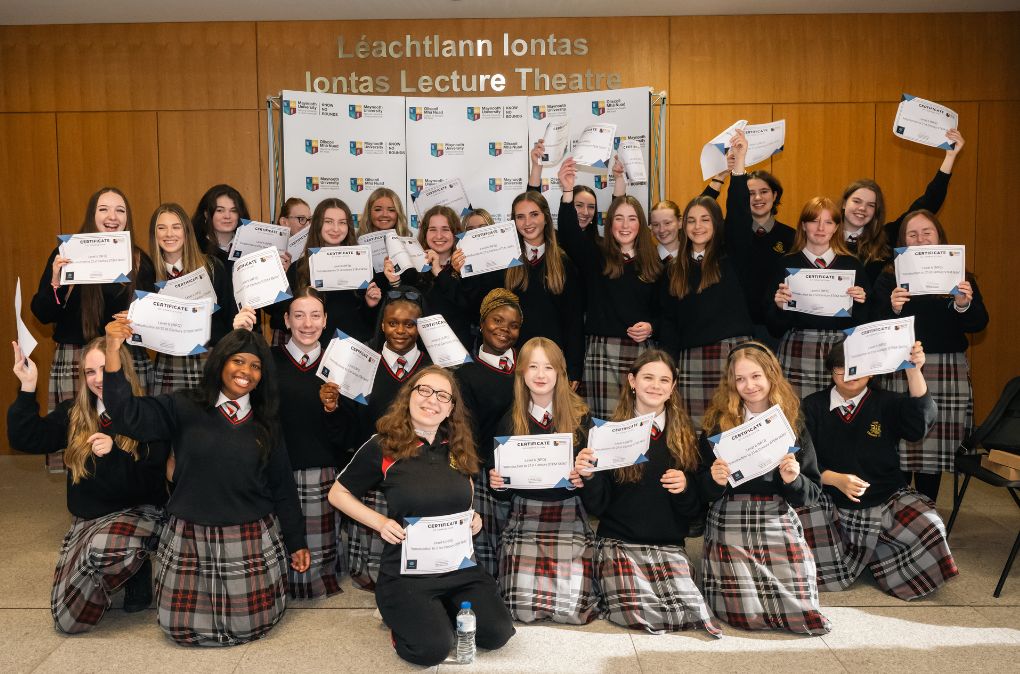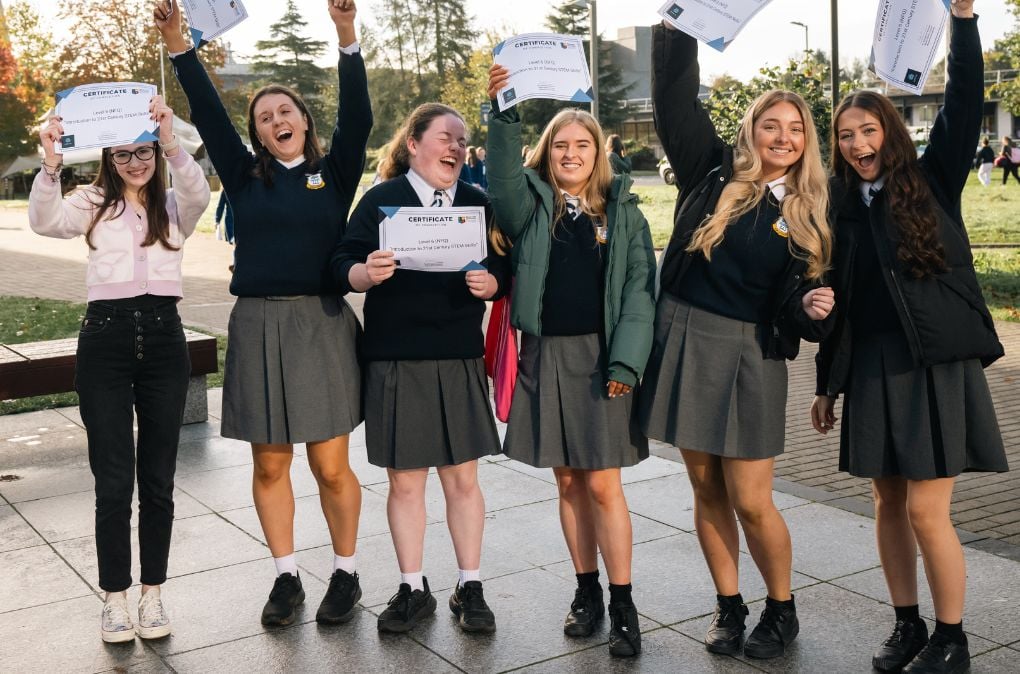Our Vision: Every person, irrespective of class or condition, will be STEM prepared
Women are not all the same!
History of the STEM Passport for Inclusion
Watch it here
- In 2021, we received our first grant - €300k from Research Ireland Discover grant, alongside the support from Microsoft Dream Space, we were able to roll out the initiative to 1,000 girls across Munster and Leinster.
- In 2023, we secured €600k in philanthropy from Microsoft Ireland which was matched by Research Ireland and the Department of Education through the discover grant. The grant of €1.2 million was used to roll the programme out to 5,000 girls across the four provinces of Ireland.
- In 2023, we adapted the programme for Transition Year students only, expanding the partnership to Atlantic Technological University (ATU), growing mentoring and establishing the Leaving Cert points pathway in both MTU and MU.
- Since 2024, we have raised a further €980k from 14 Industry partners to expand the project and have received matched funding from Research Ireland Discover Programme.
Our vision for the coming years is to extend our reach across all four provinces of Ireland and collaborate with every Transition Year student in each DEIS school. In 2025-2027 we will:
- Empower 5,000 girls to obtain a university-accredited STEM qualification within their respective provinces.
- Develop a DEIS TY work experience programme and offer to 1000 students.
- Facilitate meaningful mentorship relationships between these 5000 students and accomplished women and men working
- Promote more equitable and inclusivity in the new Industries including AI & Construction
- Expand to new groups: include working class women and mothers, students in Youth Reach and LCA students
Key Findings and Programme Impact:
- Improved STEM Awareness and Confidence: Surveys conducted with over 5,000 participants revealed notable increases in students’ STEM awareness and confidence. For example, only 28% of students knew a woman working in STEM before participating; post-programme, this figure rose to 92%. This awareness shift is crucial in breaking down stereotypes and reshaping students' aspirations.
- Bridging the Socioeconomic Gap: Surveys conducted with over 5,000 participants revealed notable increases in students’ STEM awareness and confidence. For example, only 28% of students knew a woman working in STEM before participating; post-programme, this figure rose to 92%. This awareness shift is crucial in breaking down stereotypes and reshaping students' aspirations.
- Positive Influence of Mentorship: Mentorship feedback revealed a heightened awareness of their unconscious biases and a re-evaluation of their preconceptions about who can excel in STEM, reinforcing the programme’s broader impact on promoting equality in STEM.
- Broadening Mentor Perspectives and Awareness: Surveys conducted with over 5,000 participants revealed notable increases in students’ STEM awareness and confidence. For example, only 28% of students knew a woman working in STEM before participating; post-programme, this figure rose to 92%. This awareness shift is crucial in breaking down stereotypes and reshaping students' aspirations.
- Increased STEM Intentions and Career Aspirations: Post-programme analysis showed substantial increases in participants’ desire to pursue STEM careers. Students reported feeling that STEM fields were accessible to them, a change linked directly to programme participation.
Our mentoring program has built a network of 1100 mentors from 180 companies who champion equality and diversity in STEM. This success stems from our shared vision and dedicated support.
Collaboration is at the heart of STEM Passport for Inclusion. Led by Dr. Katriona O'Sullivan, we work closely with industry and education leaders like Dr. Kevin Marshall (Microsoft Education Ireland), Liam Cronin (RDI HUB), Professor Helena McMahon (Munster Technological University) and Professor Jacquline McCormack (ATU).
In 2024 our strategic partnerships have grown, including the Construction Industry, Banking, Technology, Engineering, Finance...
Schools: Register your DEIS school for the STEM Passport for Inclusion program
Mentors: Become a STEM mentor and inspire the next generation of innovators
Organisations: Organisations: Partner with us to support inclusive STEM opportunities
General enquiries: Contact us



